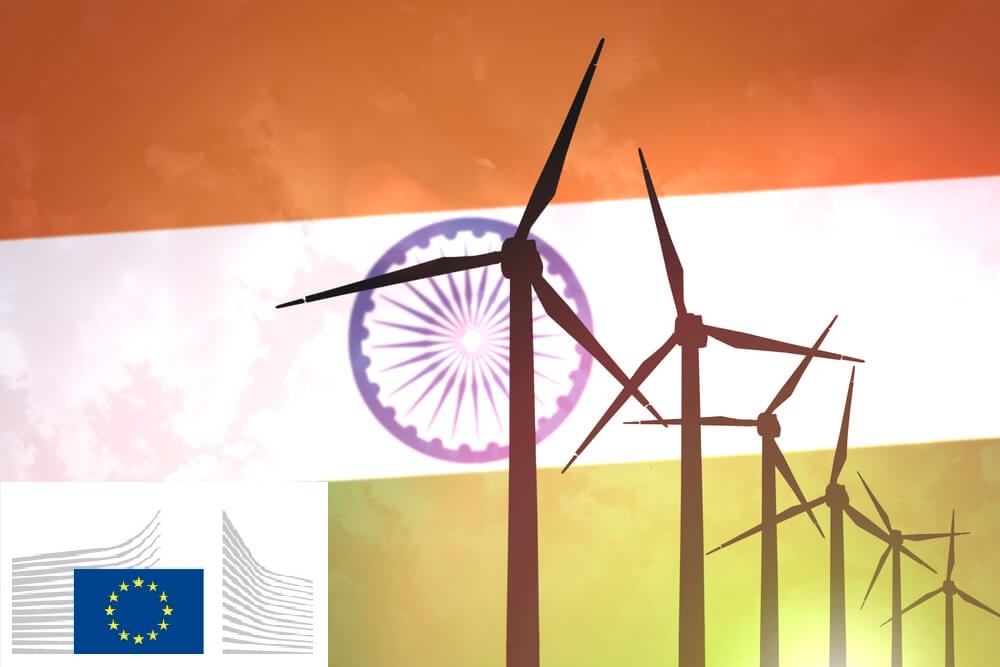

The European Union (EU) recently announced in a joint communication that it aims to reinforce the EU-India strategic partnership, with the prime focus on building a strong partnership for sustainable modernization. Through the partnership, the EU expects to join forces with India to consolidate the rules-based global order, to develop a shared approach at the multilateral level to address global challenges and seek common responses to security threats and regional issues.
“India’s energy mix is currently dominated by coal (50% of primary energy consumption), but the country has started implementing one of the world’s largest clean energy transition programmes using its renewable energy potential. EU-India cooperation can help to deliver reliable, sustainable and affordable energy systems, while at the same time contributing to the growth of the EU’s energy technologies sector. The EU will further engage with India on energy security, energy efficiency, renewable energy sources, including solar and offshore wind, smart grids and off-grid systems, as well as on policies to develop an electricity system which can reliably integrate large shares of renewable energy,” says the EU statement.
The partnership via its clean energy and climate policy will work on bringing in business solutions and green technologies in order to enable the energy transition and address climate change by increasing resilience and reducing greenhouse gas emissions. Besides this, the EU will engage with India on energy security, efficiency, renewable energy sources, including solar and offshore wind, smart grids and off-grid systems, as well as on policies to develop an electricity system which can reliably integrate large shares of renewable energy.
Commending India’s strong stance against climate change and political will in negotiations for the Paris Agreement, the union aims to support the implementation of the Paris Agreement, seeking closer cooperation on climate change mitigation and adaptation and mutual learning to inform the development of the long-term strategies to be submitted under the Agreement. Similarly, EU has stated that cooperation is essential for developing an ambitious post 2020 global framework on biodiversity.
The following are the actions that the EU would focus on to take to achieve the mentioned goals:
Other areas that the EU will look to work on will include trade, digitisation, urbanisation, development of rural communities, data protection, public health and, research and innovation.
Thus, in effect, the EU seeks to ensure India’s efforts to meet its Paris agreement targets have a heavy EU involvement too, creating business opportunities for firms in the sector in the EU too. Considering the fact that for developing countries like India, one of the key challenges has been access to green technologies at a cost that is viable, we hope this initiative from the EU will focus on that aspect too, to make a real, significant impact on the fight against climate change.
Importantly, considering the sheer size of the work ahead, and by default, the opportunity in the area, India also needs to ensure this is not a one way street, and explore ways to ensure its firms get preferential or fair access to EU markets too, where they offer services that are relevant.
1. The mandate for blending Compressed Biogas (CBG) with natural gas has come into effect…
Andhra Pradesh is striving towards greening its energy sector with quite some speed. In a…
With an objective to bolster India’s green energy goals, a Tripartite Agreement has been signed…
The Union MNRE Minister Pralhad Joshi launched the Green Hydrogen Certification Scheme of India (GHCI)…
India’s energy conglomerate Bharat Petroleum Corporation Limited (BPCL) has commissioned a 5MW green hydrogen plant…
In a historical development, the European Space Agency (ESA) has successfully launched its pioneering ‘Biomass’…